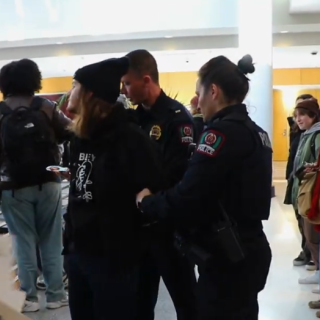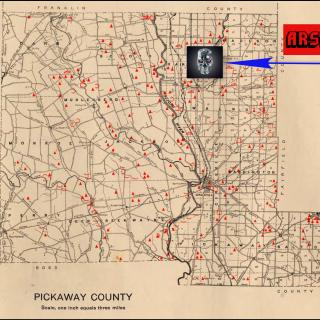Have Columbus city officials ever demanded the Columbus Division of Police to aggressively enforce the law so to generate revenue for the city?
While such a direct demand might not have happened in Columbus, the Department of Justice (DOJ) investigation on the Ferguson Police Department in 2014 exposed that financial crisis’ can cause this very kind of demand from a City to its Police Department.
After the killing of 18-year-old Ferguson, Missouri resident Michael Brown at the hands of a white officer in 2014, the DOJ uncovered overwhelming evidence that policing is not always about protection - it’s also a tactic Ferguson city officials demanded from their police force to generate revenue.
After the 2008 financial crisis, cities like Ferguson needed ways to generate more revenue. So in March 2010, Ferguson’s City Finance Director wrote an email to its chief of police:
“Unless ticket writing ramps up significantly before the end of the year, it will be hard to significantly raise collections next year…Given that we are looking at a substantial sales tax shortfall, it’s not an insignificant issue.”
Then in March 2013, the Finance Director wrote this to the City Manager: “Court fees are anticipated to rise about 7.5%. I did ask the Chief if he thought the PD could deliver 10% increase. He indicated they could try.”
Ferguson’s 2010 budget was $11.07 million, with court fees and tickets making up $1.28 million. By 2015 that amount from court fees and tickets increased to $3.09 million.
This has been referred to as “municipal fine farming”, a term author Jackie Wang in her book Carceral Capitalism uses to illuminate one form of legitimized ‘looting’ of residents by the public sector.
The financialization of crime can lead to extremely inefficient policing. Ferguson Police would arrest individuals for things like not wearing a seat belt while in a parked car and charged individuals with ‘Making a False Declaration’ after they provided the short form of their name (“Mike” instead of “Michael”). Charges like these were a regular occurrence in Ferguson.
All of this equates to more citizens paying court fines, but also increased situations where police have deadly encounters with innocent citizens.
The DOJ stated in its report, “Ferguson police officers from all ranks told us that revenue generation is stressed heavily within the police department, and that the message comes from City leadership. The evidence we reviewed supports this perception.”
The DOJ continued, “This emphasis on revenue has compromised the institutional character of Ferguson’s police department, contributing to a pattern of unconstitutional policing, and has also shaped its municipal court, leading to procedures that raise due process concerns and inflict unnecessary harm on members of the Ferguson community.”
Municipal fine farming and other financial incentives for policing are not new and have been experienced first-hand disproportionately by black communities throughout America for decades.
From 2012 to 2014, African Americans in Ferguson accounted “for 85% of vehicle stops, 90% of citations, and 93% of arrests made by FPD officers, despite comprising only 67% of Ferguson’s population.”
The DOJ found “substantial evidence of racial bias among police and court staff in Ferguson…we discovered emails circulated by police supervisors and court staff that stereotype racial minorities as criminals, including one email that joked about an abortion by an African-American woman being a means of crime control… Nearly 90% of documented force used by FPD officers was used against African Americans.”
The Columbus police budget is around $360 million or 37 percent of the city’s operating budget. The city last year brought in $18.9 million in revenue from police and court administered fees and fines, roughly the average for the past decade.
The current financial crisis is greatly jeopardizing Columbus’ revenue. 78% of Columbus’ municipal revenue comes from income taxes and since Franklin County’s unemployment skyrocketed from 25,900 (3.7%) in February to 93,600 (13.9%) in April, the city will be forced to look for new solutions to raise revenue.
As city and state revenues have drastically fallen, essential community programs have taken major cuts while police continue to obtain more funds.
Columbus City Council just approved over $1 million in city funds to ‘up-fit’ police vehicles, while Gov. DeWine’s budget solution to the pandemic fallout was to cut education, taking $9.1 million away from Columbus City Schools for the upcoming school year.
Although Columbus has a higher infant mortality rate than Cuba, the city spends 3.5 times as much on police uniforms than it does on infant mortality efforts.
While municipal fine revenues have stayed somewhat flat in Columbus, it’s clear that securing revenue for Columbus police and private companies in the form of tax abatements is more important than funding schools or social welfare.
If the current protests calling for a defunding of Columbus police continue to fall on deaf ears, Columbus risks falling into an accelerated version of the current budget, mirroring what happened in Ferguson – a financialization of crime that sees its poorest residents as an ATM while securing funding for the police and private development.



